Have you ever wondered what elephants actually remember? Sure, you’ve heard the saying, but what does it really mean in practical terms? While you might struggle to recall where you left your keys this morning, elephants have an impressive memory that lets them hold onto a wealth of information. From recalling their paths to knowing who their friends are, elephants remember things that humans would have likely forgotten ages ago. Here are 14 amazing things elephants keep in their memory banks.
1. Faces Of Friends And Foes
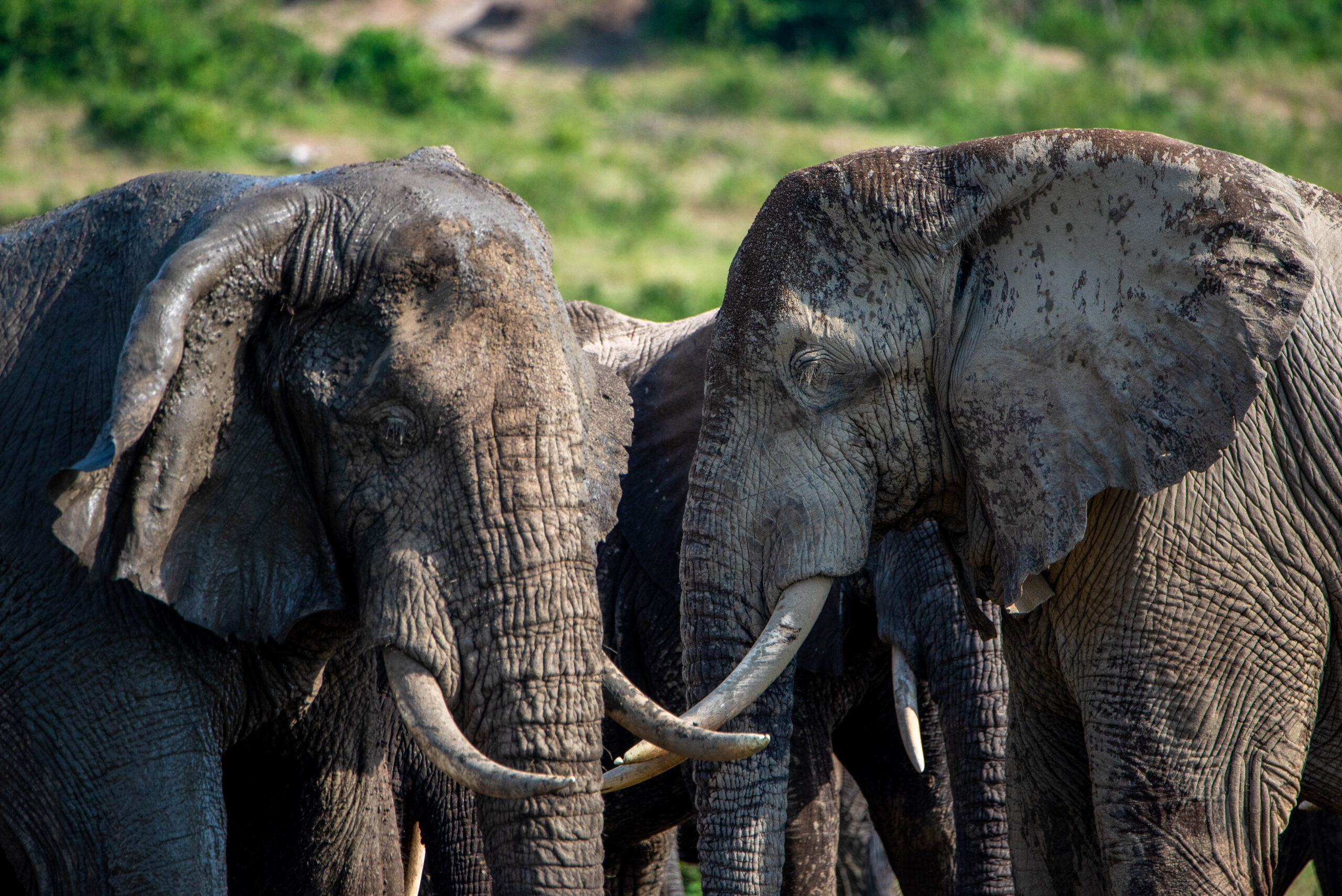
Elephants have the incredible ability to remember individual faces, whether they belong to another elephant, a human, or even a threat. Just like how you might remember a friend’s face after years apart, elephants can recall who treated them kindly and who didn’t. According to a study by Professor Richard Byrne at the University of St Andrews, elephants can distinguish between different human groups, even remembering who poses a threat to them. This memory skill serves as a protective mechanism in the wild, helping them navigate their social and physical environments. So, next time you’re at the zoo, remember that the elephants might recognize you on a return visit.
This facial recognition extends beyond just remembering individuals; it influences their social behavior and emotional responses. When reunited with familiar faces, elephants often show signs of joy and excitement. On the flip side, they can be cautious or defensive around those they remember as adversaries. This strong memory of social interactions helps maintain their complex social dynamics within herds. It’s a skill that serves them well, especially in environments where their survival depends on trust and relationships.
2. Migration Routes
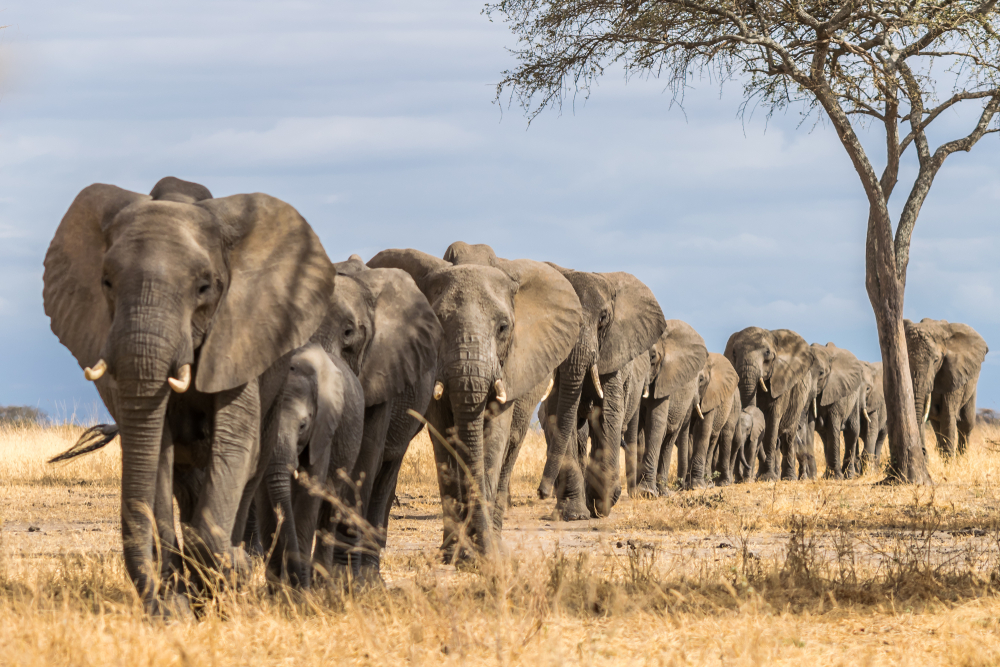
Unlike you, who might need a GPS to get across town, elephants have an uncanny memory for migration routes. These routes are often passed down through generations, with older elephants leading the way. This knowledge is vital for survival, especially in areas where water sources are scarce. An elephant’s memory helps them return to reliable water and food locations year after year. It’s like having a mental map that updates with new information as they explore their environment.
The ability to remember migration paths is crucial for the herd’s wellbeing. It ensures that they can find resources during dry spells and avoid areas where danger might be lurking. This knowledge isn’t just about survival, though; it’s also about teaching younger generations the intricacies of their world. Older elephants play a key role in imparting this wisdom, making sure that the herd can thrive in ever-changing landscapes. So next time you’re lost without Google Maps, think about how elephants manage just fine on their own.
3. Watering Holes And Their Seasonal Changes
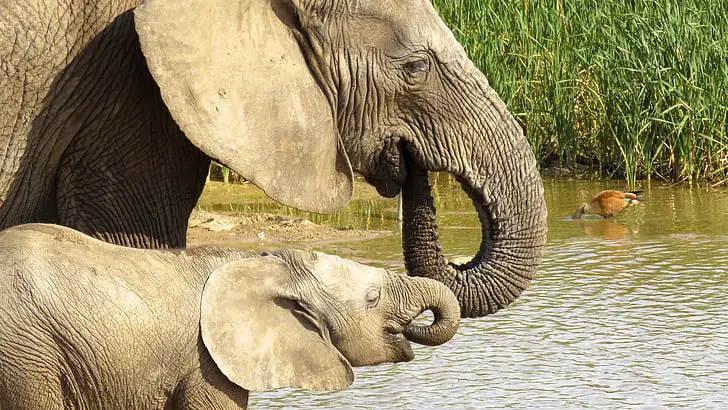
Water is a precious resource in the wild, and elephants have the remarkable ability to remember the locations of watering holes. They can even recall how these watering holes change with the seasons. This memory ensures that they can find water even in times of drought, when other animals might struggle. A study by Dr. Lucy King published in Biology Letters found that elephants can even track rainfall patterns to decide when to move towards certain water sources. So, while you might worry about running out of bottled water, elephants are busy using their memory to plan their hydration strategy.
Remembering the specifics of each watering hole is no small feat. Elephants can recall which ones are reliable and which ones dry up quickly. This information is vital when planning their movements, especially for larger herds. Their memory also helps them avoid areas where they might encounter danger, such as predators or human interference. With their complex understanding of the landscape, elephants show just how much we underestimate the power of memory in the animal kingdom.
4. The Smell Of Danger
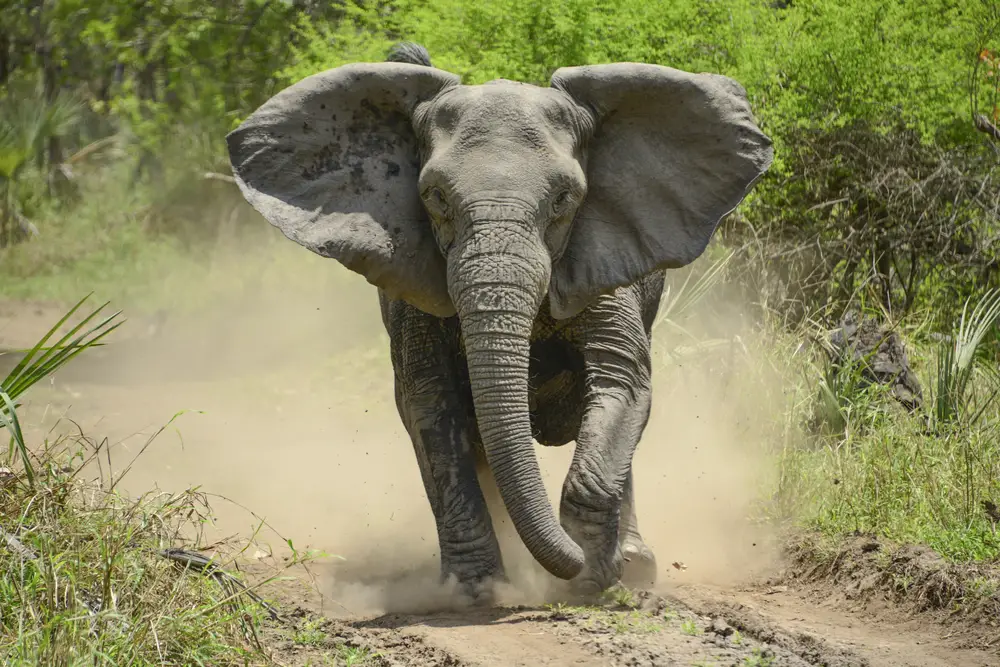
Elephants have an extraordinary sense of smell, which they use to remember and recognize potential threats. If they encounter a predator or even a human who means harm, they can recall that specific scent for years. This memory helps them avoid dangerous situations in the future, allowing them to navigate their environment safely. The ability to remember and react to scents is an essential survival tool, assisting them in avoiding areas where they previously sensed danger. Imagine having a nose so sensitive that you could smell trouble from a mile away—elephants can do just that.
Their sense of smell isn’t just about detecting danger, though. Elephants also use it to identify other elephants and to navigate their surroundings. This skill becomes particularly useful in dense forests or during the night when visibility is low. So while you might rely on sight to get around, elephants have a whole world of information available through their noses. Their olfactory memory is one more example of how animals often possess skills humans can only dream of.
5. Mating Calls And Signals
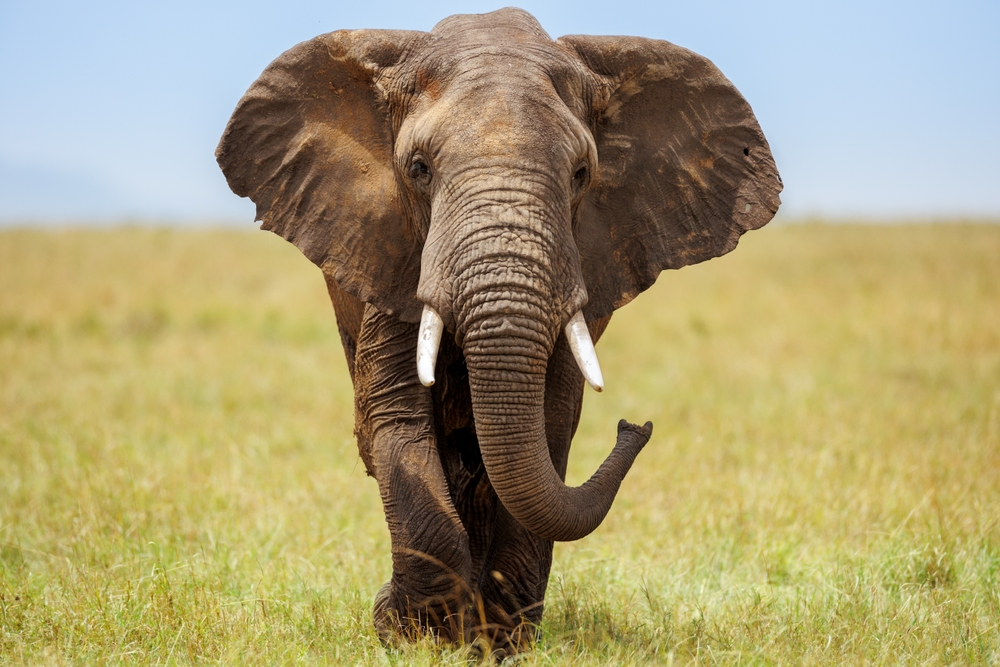
Elephants have a complex communication system, and they’re exceptional at remembering mating calls and signals. This memory plays a crucial role during mating season, allowing them to recognize potential mates. A study by Dr. Joyce Poole, an expert in elephant communication, showed that elephants can remember and respond to specific vocalizations even after long periods. This ability ensures that they can find compatible mates, which is essential for maintaining healthy populations. So while you might struggle to remember a catchy tune, elephants can recall intricate vocal patterns.
This memory skill isn’t just about reproduction; it also influences their social structure and relationships. By recognizing different calls and signals, elephants can gauge the mood and intentions of others within the herd. This understanding helps them maintain harmony and avoid conflicts. They can also discern calls from other herds, which can be useful in avoiding territorial disputes. With such a comprehensive communication system, elephants demonstrate just how sophisticated animal interactions can be.
6. Birth Dates Of Calves
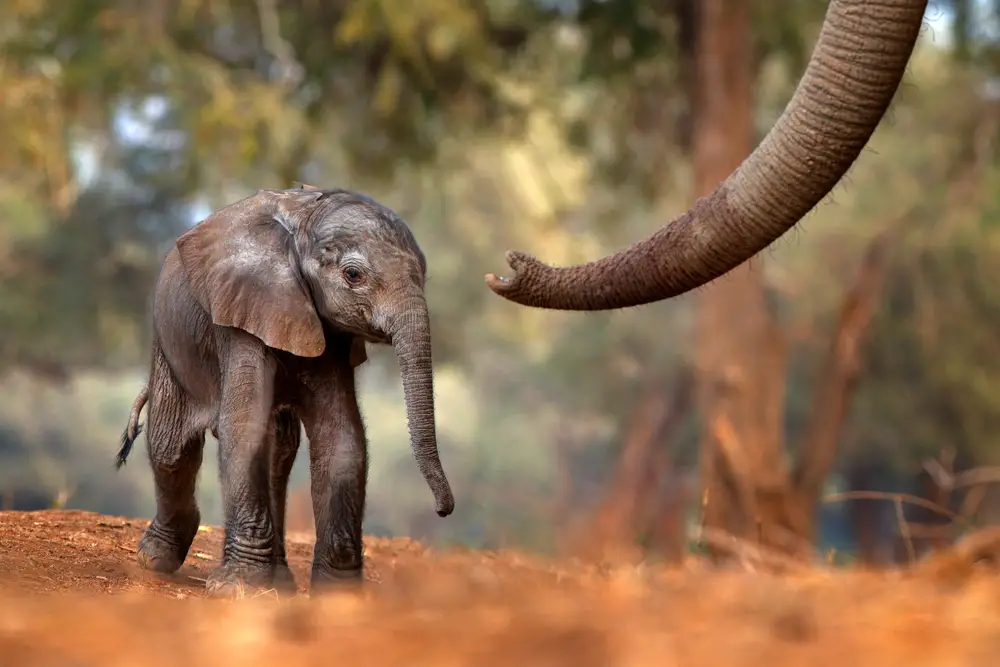
Elephants have an impressive memory for the birth dates of calves within their herd. This knowledge helps them track the development and growth of each young elephant. By remembering these dates, older elephants can provide the necessary guidance and support to the mothers and their calves. This attentive care ensures that the young ones get the best start in life, with all the protection and resources they need. It’s the animal kingdom’s version of keeping a family calendar.
Tracking birth dates is about more than just marking another year. It also helps elephants manage the social structure of their herds. They can recall which calves need more protection and which are ready to take on more responsibility. This structured approach to herd dynamics allows elephants to thrive in the wild, where challenges and dangers are always present. Their memory of such pivotal details speaks volumes about their intelligence and social awareness.
7. Traumatic Events
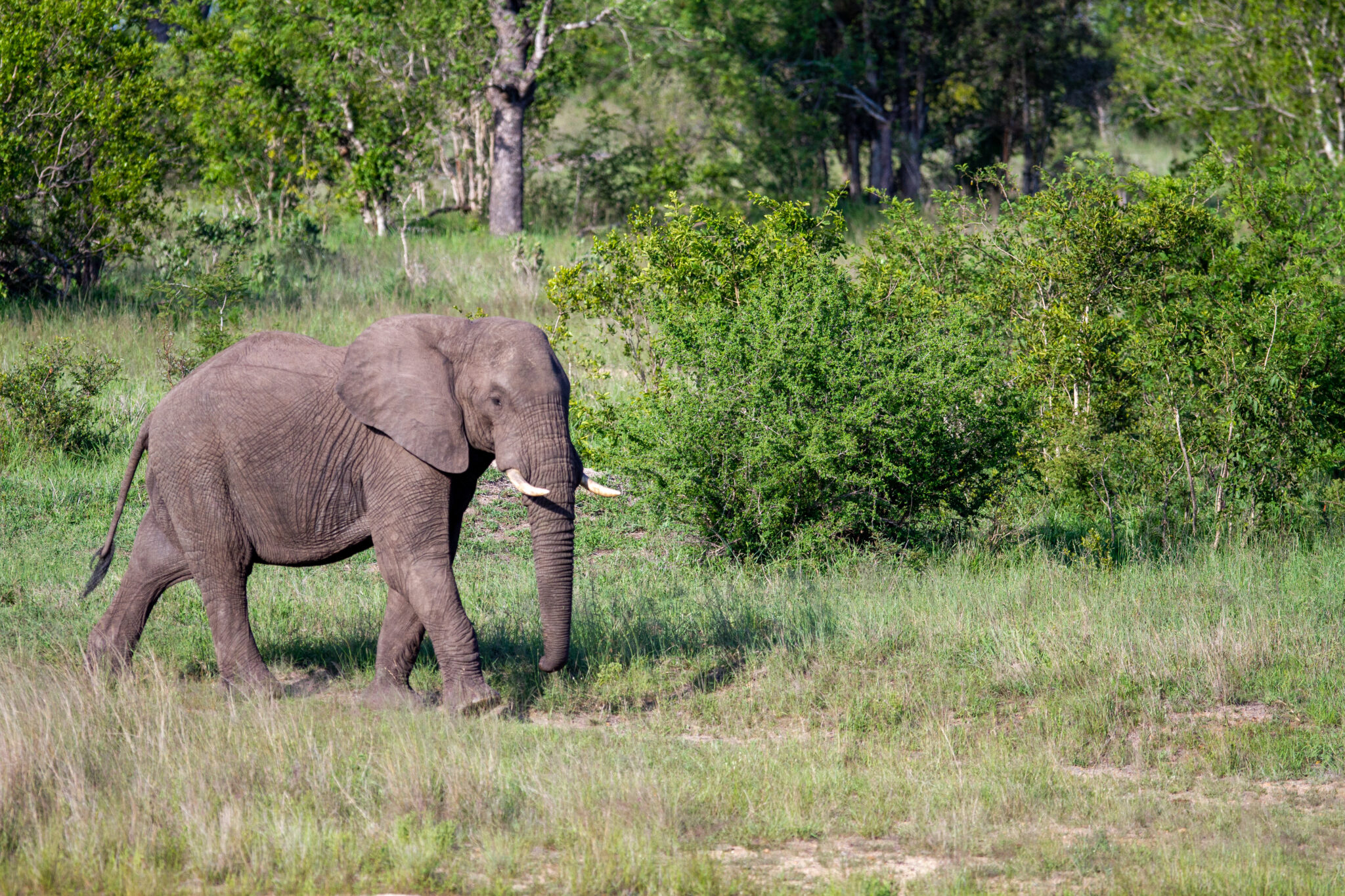
Elephants have a remarkable ability to remember traumatic events, and this can deeply affect their future behavior. Much like how humans might remember a particularly stressful or frightening experience, elephants hold onto these memories. Dr. Caitlin O’Connell-Rodwell, an expert on elephant communication, found that elephants who experienced traumatic events often showed signs of post-traumatic stress. This can manifest in various ways, such as avoidance of certain areas or heightened aggression. So while you might try to forget a bad day, elephants might carry those memories with them for life.
These memories aren’t just about the past; they influence how elephants interact with their surroundings and others. Understanding this aspect of elephant memory is crucial for conservation efforts, especially when dealing with animals that have been rescued from poaching or habitat destruction. By addressing their emotional needs, conservationists can help elephants heal and adapt to new environments. Their ability to remember and react to past events highlights the complexity of their emotional and cognitive world.
8. Family Trees
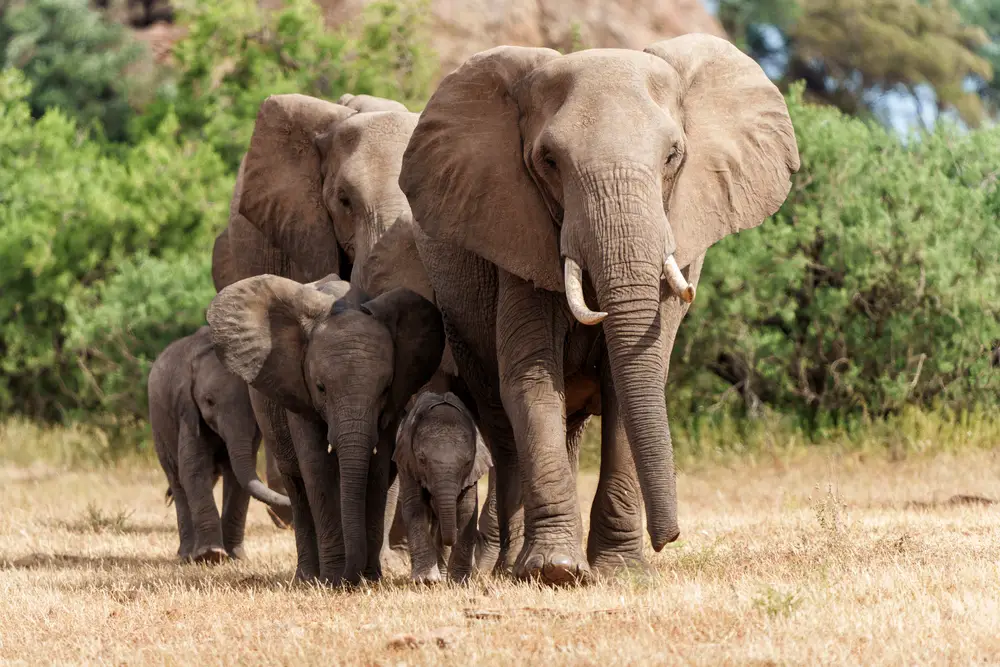
Elephants have a keen awareness of their family trees, remembering the connections between various members of their herd. This memory aids in strengthening familial bonds and maintaining social order. Just like how you might know your extended family, elephants can recall who is related to whom. This helps them form alliances and offer support to relatives in need, ensuring the herd’s overall wellbeing. Understanding these family dynamics is essential for their social structure.
Remembering family trees isn’t just about keeping track of who’s who. It also helps elephants maintain harmony within their groups. By knowing their place within the hierarchy, they can navigate social interactions more efficiently. This understanding prevents conflicts and fosters cooperation among herd members. So while you might rely on family reunions and photo albums, elephants keep their family history alive through memory and daily interactions.
9. Changes In The Environment
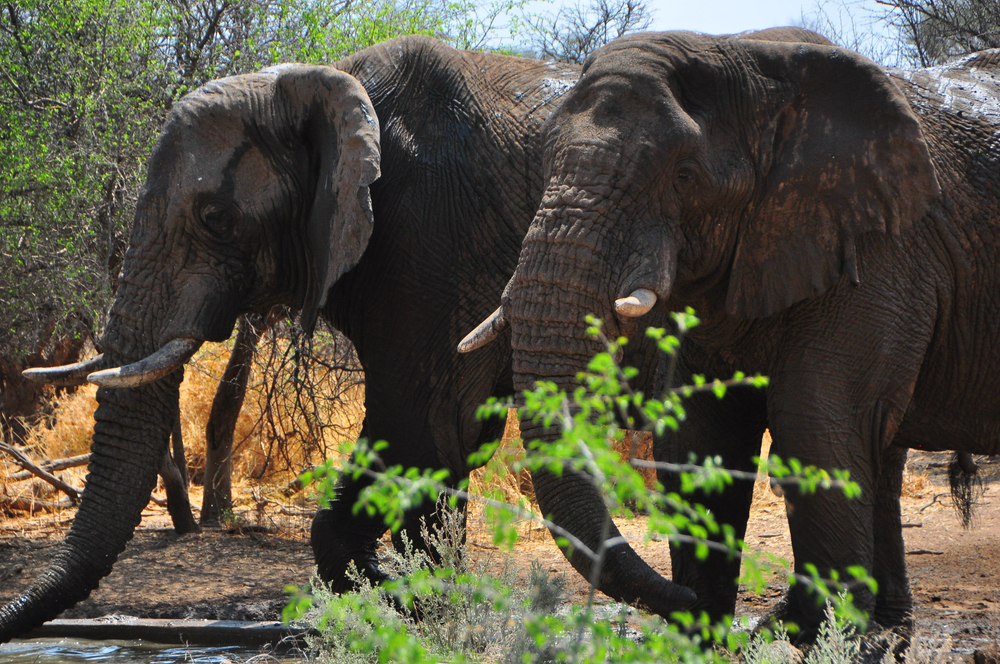
Elephants are highly attuned to changes in their environment and have the memory to back it up. They can recall what their surroundings looked like years ago and notice even subtle changes. This awareness helps them adapt to new challenges, such as shifts in food availability or water sources. By remembering past conditions, elephants can make informed decisions about where to go and when. It’s like having a mental archive of environmental knowledge.
This ability to remember environmental changes is crucial for their survival. It enables elephants to predict patterns and anticipate future events, such as seasonal shifts in resources. Their memory also helps them avoid potentially dangerous areas or situations. By staying attuned to their surroundings, elephants can navigate their world with remarkable efficiency. While humans might rely on weather apps, elephants use their memory and intuition to stay one step ahead.
10. Sounds Associated With Danger
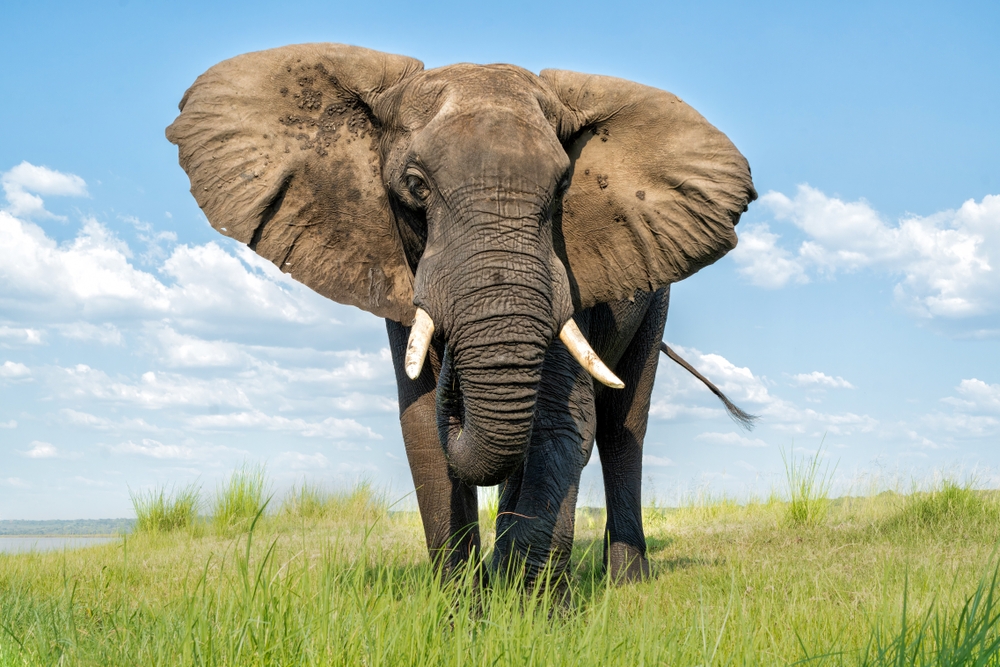
Elephants have an exceptional memory for sounds that signal danger, and this ability plays a key role in their survival. Whether it’s the roar of a predator or the sound of a poacher’s gunshot, elephants can recall these sounds and react accordingly. This memory helps them avoid risky situations and protect the herd from harm. It’s like having an internal alarm system that alerts them to potential threats. Their acute sense of hearing is a vital part of their defensive toolkit.
Remembering danger-related sounds isn’t just about immediate reactions. It also influences how elephants navigate their habitat over the long term. By recalling which areas are associated with danger, they can alter their routes and avoid repeating past mistakes. This strategic approach to danger management showcases their ability to learn and adapt. While humans might rely on warning signs, elephants have an innate understanding of the risks they face.
11. Preferred Feeding Spots
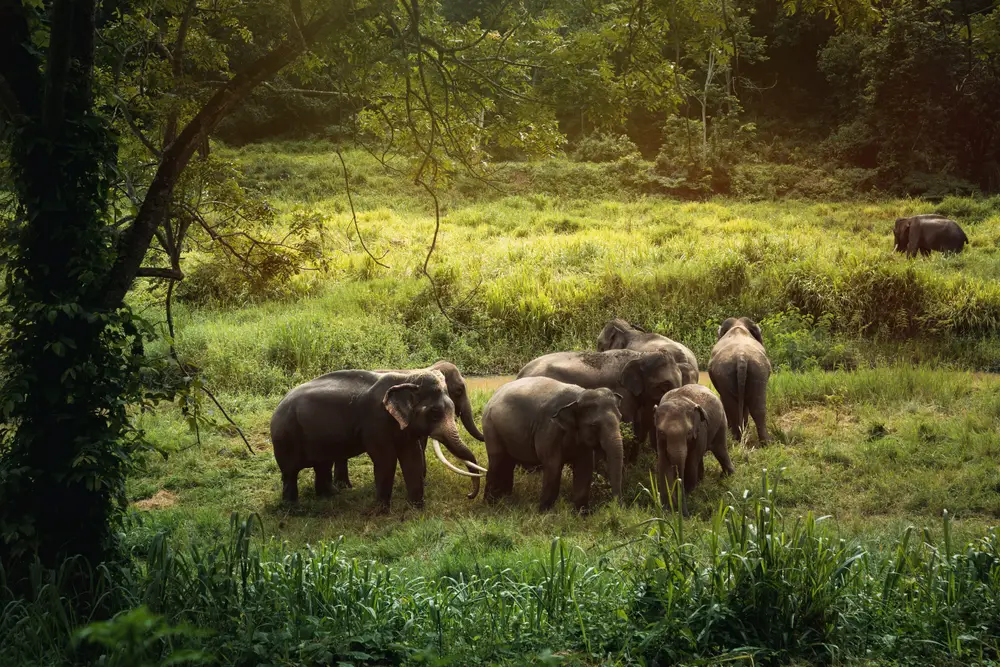
Elephants have an impressive memory for their favorite feeding spots, and they can recall these locations with astonishing accuracy. This knowledge is essential for finding quality food sources, especially in areas where resources are limited. Unlike humans who can simply buy food, elephants rely on their memory to locate the best feeding grounds. By remembering these spots, they ensure that the herd has enough nourishment to thrive. It’s like having a mental Rolodex of the best restaurants in town.
These preferred feeding locations aren’t chosen at random. Elephants remember which areas consistently offer nutritious and abundant food. This strategic approach to feeding helps them make the most of their environment. Moreover, by recalling where to find food, they can avoid competition with other animals. This memory skill illustrates their ability to make informed decisions based on past experiences, a trait that’s vital for their survival.
12. Natural Disasters
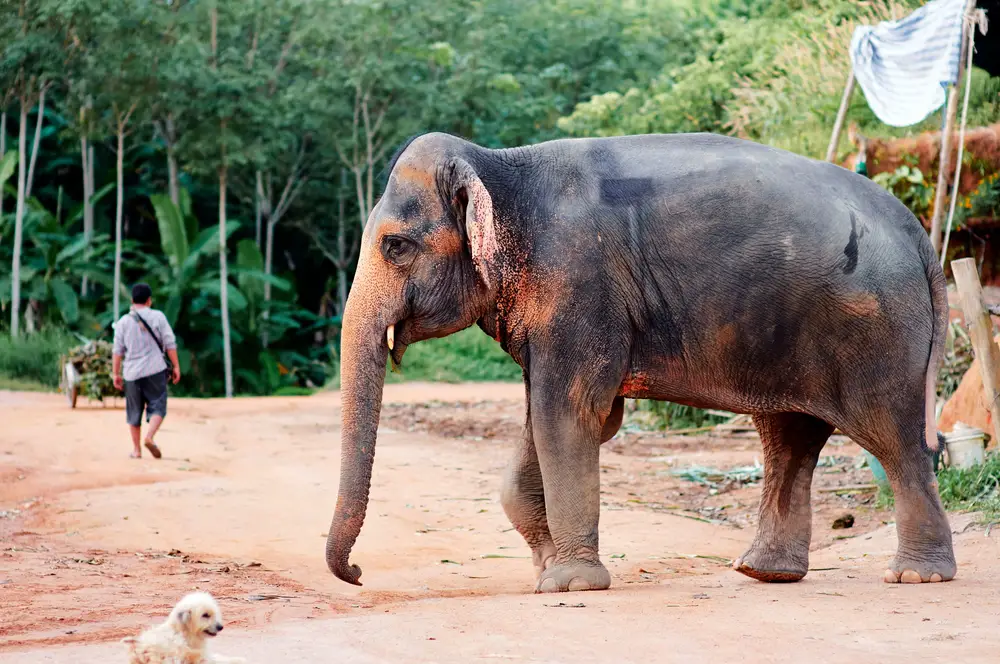
Elephants have the remarkable ability to remember natural disasters, and this memory helps them prepare for future events. Whether it’s a flood, drought, or wildfire, elephants can recall past incidents and use that knowledge to avoid danger. This awareness allows them to respond quickly when facing similar situations again. By remembering these occurrences, elephants can make informed decisions about their movements and actions. It’s like having a built-in survival guide for navigating extreme weather.
This memory of natural disasters isn’t just about self-preservation. It also plays a role in how elephants teach younger generations about survival. By passing down stories of past events, older elephants help the herd prepare for future challenges. This knowledge transfer ensures that even those who haven’t experienced disasters firsthand know how to respond. It’s a testament to the intelligence and adaptability of elephants in the face of adversity.
13. Communal Bonds With Other Herds
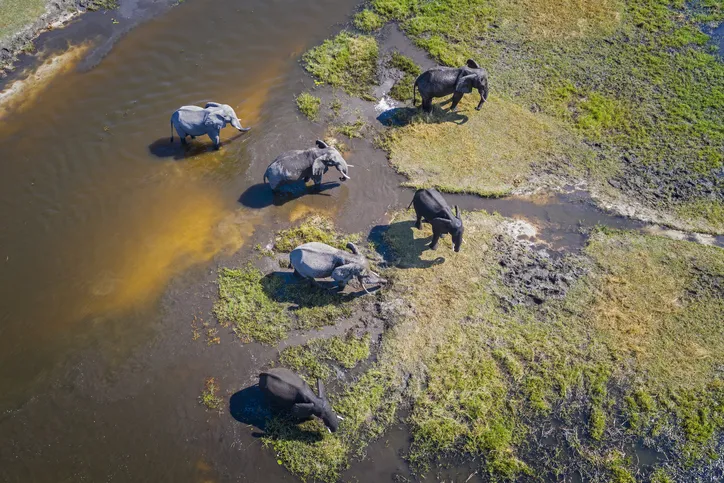
While elephants are known for their strong familial bonds, they also remember connections with other herds. This memory fosters a sense of community and cooperation among different groups. Just as humans maintain friendships and alliances, elephants recall past interactions with neighboring herds. These communal bonds help them during times of scarcity or danger, when cooperation can make all the difference. It’s like having an extended network of support in the wild.
Remembering these external relationships is vital for maintaining social harmony. Elephants can call upon their allies when needed, whether for protection or resource sharing. This interconnectedness helps stabilize their environment and ensures that they can thrive even amid challenges. By fostering positive relationships with other herds, elephants demonstrate the power of cooperation and diplomacy. It’s a social strategy that’s both practical and essential for their survival.
14. Historical Landmarks
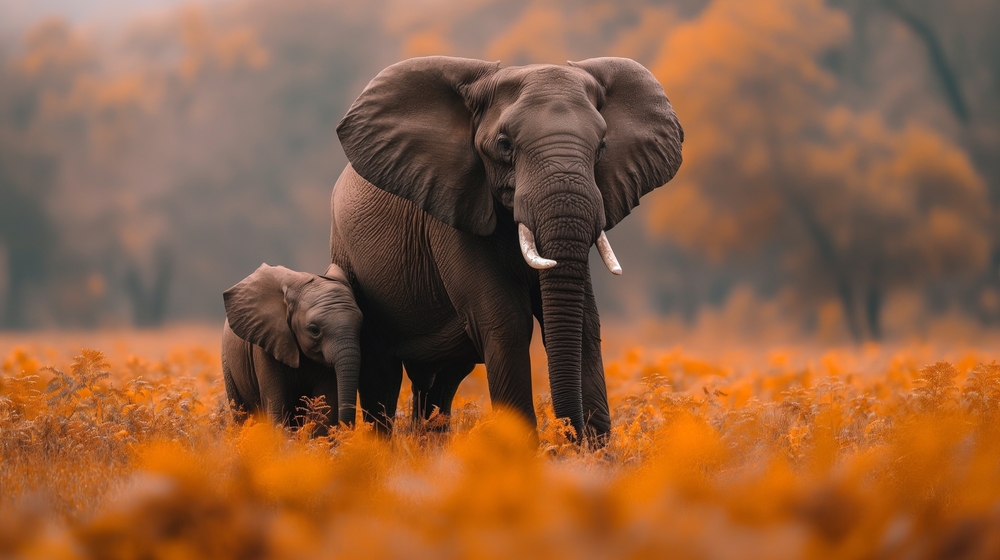
Elephants have a keen memory for historical landmarks, recognizing significant sites that play a role in their history or culture. These landmarks might be locations of past events, such as battles or important meetings. By remembering these places, elephants can connect with their heritage and pass down stories to younger generations. This memory helps maintain a sense of identity and continuity within the herd. It’s like having a mental map of their history and culture.
This awareness of historical landmarks isn’t just about nostalgia. It also plays a practical role in how elephants navigate their environment. By recalling these sites, they can use them as reference points when traveling or searching for resources. This spatial awareness ensures that they can move efficiently and avoid getting lost. Their ability to remember and interpret these landmarks underscores their deep connection to their environment.
